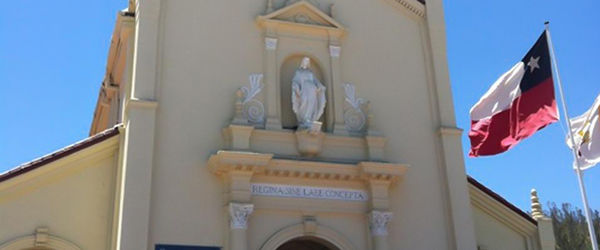rn Editor’s note: The following column for the 20th Sunday in Ordinary Time was inadvertently omitted from last week’s Tidings. This week, we are running Bill Peatman’s column for both the 20th and 21st Sundays, with our apologies for the error.Today’s first reading shares a powerful vision of what God wants our spiritual communities to be: “My house shall be called a house of prayer for all peoples.”I’m not sure we’re there yet. I mean, there are worshippers of God, Catholic and otherwise, in virtually every nation and race in the world, But they, or we, are not yet united in a single home. We tend to want to separate into groups that are identified more by our differences in beliefs. Are we all part of one global “house of prayer for all nations?” I don’t think so.Of course, I also need to ask myself if I am helping to bring this vision to reality. Am I open to sharing a home with believers of other faiths? Can I embrace the idea that whether we know it or not we are all pilgrims on the same spiritual journey, and have the same kind of compassion and respect for others that I expect them to extend towards me?In last Sunday’s (Aug. 14) Gospel reading, a woman of another faith approaches Jesus and asks him to heal her daughter. Jesus’ disciples are put off by the request. “Send her away,” they say, “for she keeps calling out to us.” Jesus points out that he first must care for the “lost sheep of the house of Israel.” The woman persists, saying she wants only “scraps from the table.” “O woman,” Jesus responds, “great is your faith,” and her daughter is healed.Great is your faith. The disciples want to send the outsider away. But the woman sees the love and compassion of Jesus and wants to connect. She sees beyond the barriers that have been erected and asks for God’s compassion and healing from Christ. Her faith is indeed great.I’d like to think my faith is that great as well — not just do I want to be able to recognize and welcome seekers who are different than me, but I also want to be able to recognize and experience the love of God when it is present outside of my normal expectations. We need to have the humility to admit that we don’t really know how God is at work in our lives — and in the lives of others. We are better off assuming that God is always with us, whether we are feeling comfortable or not.Unfortunately, many feel that they are not welcome in our spiritual communities. The way that the Christian faith and other religions are often depicted is as exclusive, judgmental organizations. Unfortunately, the loudest voices are often heard, and the loudest religious voices in the media are generally critical of some person, group, idea or trend. They are not inviting everyone to come and enjoy the unconditional love of God. Yet that is the greatest gift we have received and that we can share. We are included in God’s house of prayer for all people. We are able to share the presence and power of God. There is no reason for us to keep it from others, or to assume that we have exhausted all channels to receive God’s grace. We can have greater faith — faith that God is bigger than our boundaries, welcoming all to God’s house of prayer.21st SundayI think one of the tendencies of human nature that gets us in the most trouble is the inclination to think we know how God should behave. When something goes wrong in our lives, or something causes pain or suffering or discomfort, we assume that this is not God’s idea and resist with all our might. We ask, “Why is this happening?” but it’s a rhetorical question. We assume it shouldn’t be happening.Or, when we want something desperately, we pray and beg and bribe God with promises of fidelity, assuming that God wants us to have what we want for ourselves. In relationships, in sports, even in war, we tend to assume that God is on our side and will protect us and lead us to what we consider victory.I don’t know about you, but I am constantly surprised and humbled by the errors of my assumptions about how God will work in my life and in the world. I have seen disasters become blessings, and blessings become disaster. I have given up on God, only to find that God has not given up on me. It may be the most difficult lesson I’ve had to learn in my life — that I am not in control, and that my attempts to wrest control from God usually only results in more grief.”Oh, the depth of the riches and wisdom and knowledge of God,” the Apostle Paul writes to the church at Rome in today’s second reading. “How inscrutable are his judgments and how unsearchable his ways! For who has known the mind of the Lord or who has been his counselor? Or who has given the Lord anything that he may be repaid?”Paul points out that we really don’t know how God works. God’s ways are “inscrutable,” and we are not invited to be God’s advisor. God doesn’t owe us anything. In other words, we are not in control, and while we can see how God has worked in the past we are given no guarantees that God will work in the same way in the future. It’s a tough lesson to learn — when someone we love rejects or betrays us, or when illness afflicts us or those we love, or when we face financial or job loss. When these things have happened to me, I assume some power beyond God is at work, and that I must fight to regain some semblance of control. Often, I see later that God was guiding me all along; I just wasn’t cooperating.It’s really good news, of course, that God is in control and we are not. If I were able to control God, I would want Him to be like a magic genie who will grant my every wish, mostly for my own success and comfort.We need to have the humility to admit that we don’t really know how God is at work in our lives — and in the lives of others. We are better off assuming that God is always with us, whether we are feeling comfortable or not. I enjoy my life much more when I ask, “Why is this happening?” because I really want to know the answer.Bill Peatman writes from Napa. He may be reached at [email protected].rn

